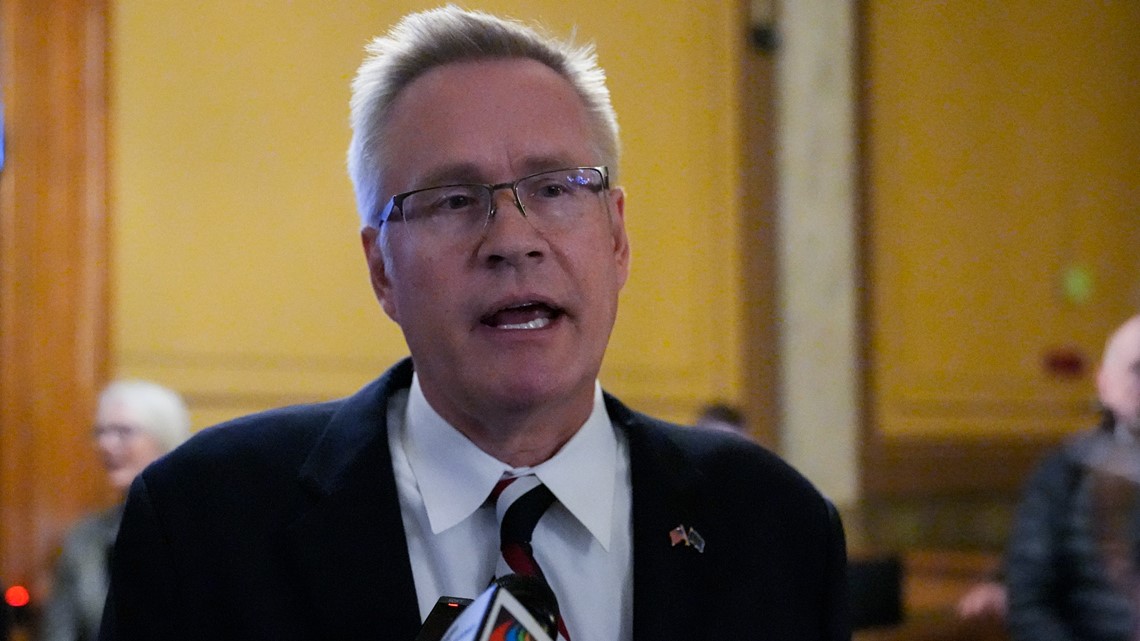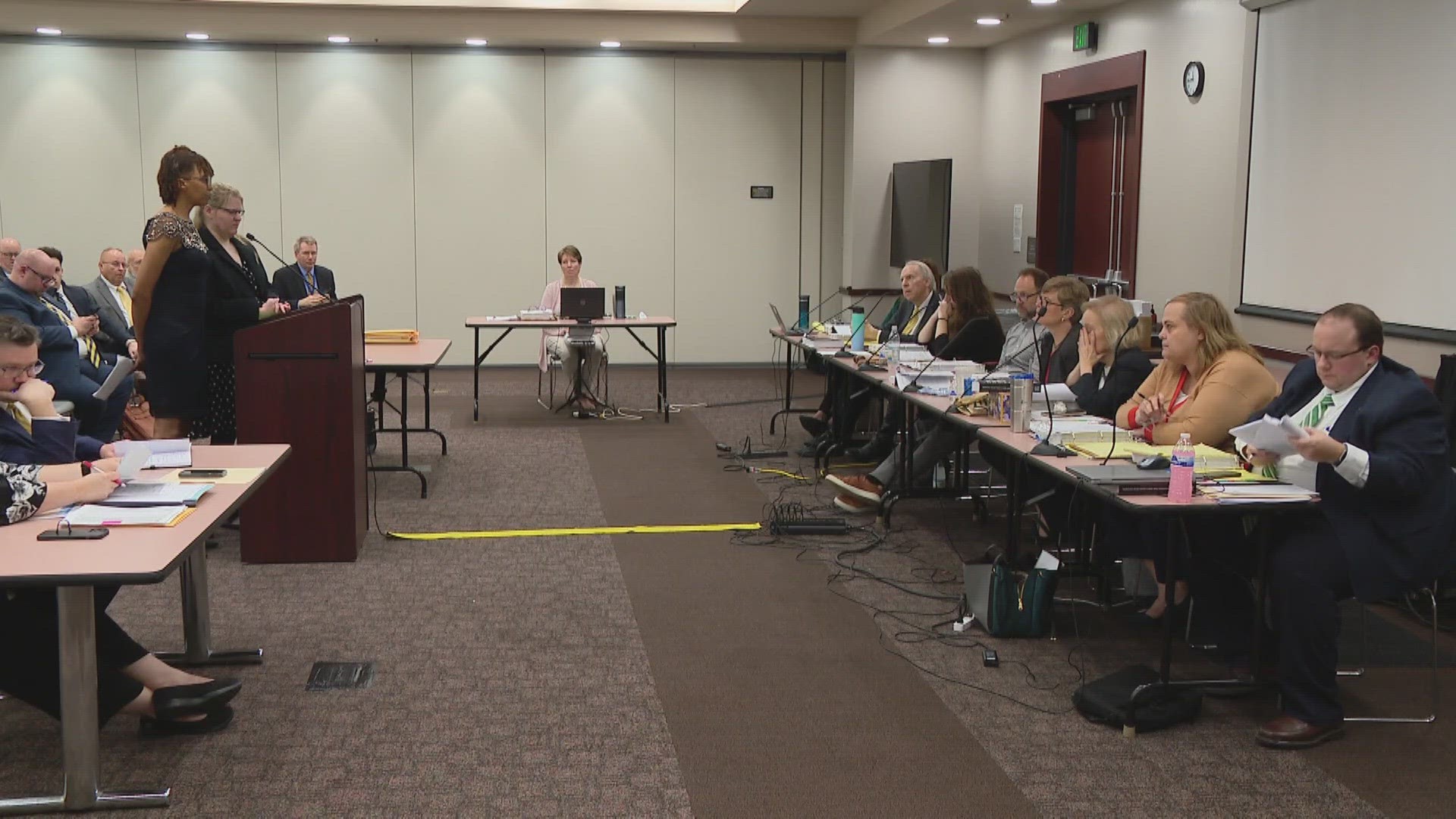INDIANAPOLIS — The primary in Indiana is just over two months away.
That’s when Hoosier voters will decide which candidates, both Republican and Democrat, will be on the ballot in November for several federal and state offices.
Tuesday, Indiana's Election Commission spent several hours hearing 30 challenges to some of those candidates even getting to be on the ballot in the May primary.
Among those challenges, one to exclude former President Donald Trump from being on the May ballot. The commission denied that challenge.
There was also a challenge to a Democratic candidate who wanted to run for governor. The commission voted to exclude Tamie Dixon-Tatum from being a Democratic candidate for governor in May.
The challenger to Dixon-Tatum’s candidacy argued she didn’t collect the 4,500 signatures required, 500 from each congressional district, to be on the ballot.
Dixon-Tatum told the commission she got over 3,000 signatures but faced challenges getting the full amount.
“I’m not wealthy. I’m not the party favorite, so I had to do triple, quadruple time the work that most people in this position would not have to do," Dixon-Tatum told the election commission.
The commission's decision to exclude Dixon-Tatum leaves former Indiana Superintendent of Public Instruction Jennifer McCormick as the only Democratic candidate running for governor on the primary ballot.
“There’s a statute that says the Republican and Democratic parties shall hold a primary election, and if you have one candidate, it’s a very hollow, it doesn’t really fulfill it. One candidate is not an election," Michelle Harter, who represented Dixon-Tatum, told commission members.


John Rust, who wants to run as a Republican to be Indiana's next United States Senator, faced six challenges to his candidacy.
Republican Congressman Jim Banks is also running for the seat and has already been endorsed by the Indiana Republican Party.
Challenges to Rust focused on an Indiana law, requiring a candidate’s party affiliation during their last two primary votes to match the party they want to represent in the current election.
According to one of Rust’s challengers, Rust voted as a Republican in the 2016 primary and a Democrat in the 2012 primary.
Another challenger questioned why Rust didn’t vote in the 2008 primary that saw an Indiana United States Senate seat on the line.
“One of the most hotly contested Republican primaries in history, Mike Braun, Todd Rokita, Luke Messer. If he can’t even vote in that primary, that’s a problem to me," challenger Kyle Babcock said.
Rust recently challenged the constitutionality of the Indiana law requiring him to have the same party affiliation in his last two primary votes.
The Indiana Supreme Court heard the case, but put on hold, a Marion County Superior Court ruling that would have stopped election officials from removing Rust from the primary ballot based on the party affiliation law.
The Indiana Supreme Court has not made a final decision on the constitutionality of that law, which effectively left the decision about whether Rust could be on the May ballot up to the election commission.
Tuesday, members voted to exclude Rust from the primary ballot.
“Mr. Rust, I’m serious when I say, 'I would love to see you on the ballot but as far as I’m concerned our hands are tied,'" said Indiana Election Commission member Karen Celestino-Horseman.
After the election commission’s decision, Rust said he would appeal it to the Marion County Superior Court as he waits to hear the Indiana Supreme Court’s decision.
“People are trying to keep qualified candidates off the ballot because they know they will win. It’s the same with Trump. It’s the same with me," Rust said.
Rust told reporters if the Indiana Supreme Court makes a decision that does not favor him, he’ll appeal it to the United States Supreme Court.
The commission heard several other challenges against candidates for federal and state office.
On Thursday, Feb. 29, Rust announced he was filing a petition to return to the ballot.

